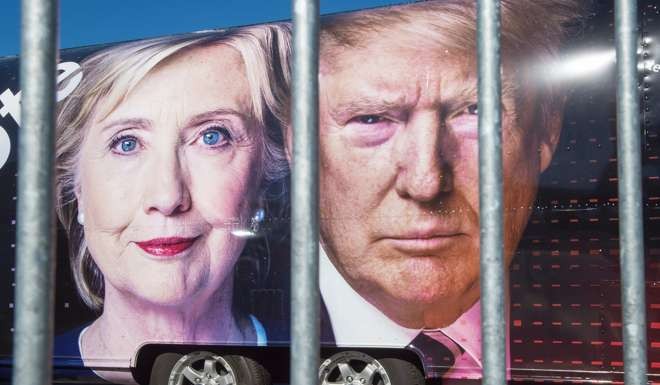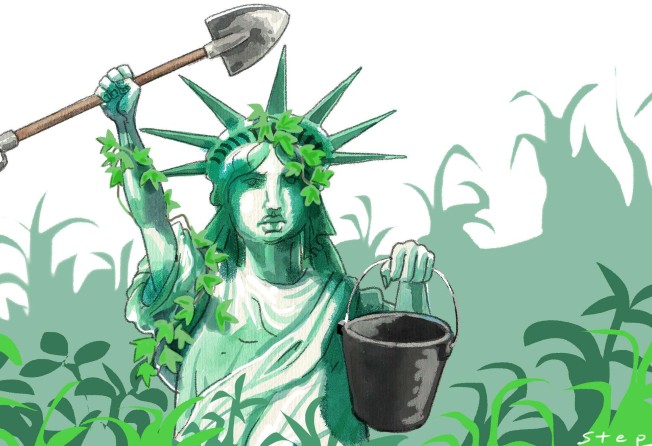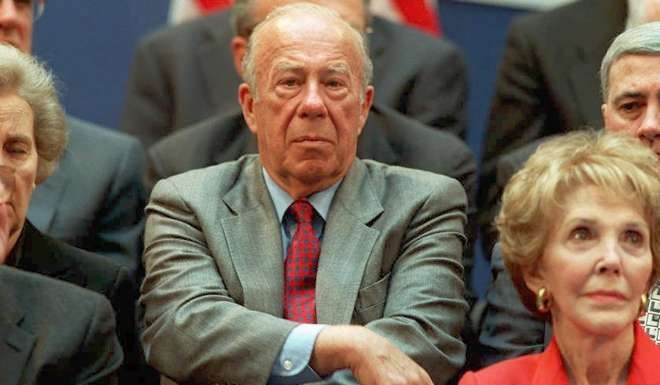
The constant gardener: why the US needs to stick to its time-tested role in Asia
Tom Plate says turning geopolitical maestro instead could prove a tall task, given that the 48 Asian nations may well play to their own tunes

It is cleverly and famously said that electoral democracy is the worst political system we have to endure in our mixed-up world, with the notable exception – and this is the key point – of all the others.
But is this well-travelled bromide still salient? Are you still a happy fan? Have you listened to what is coming out of the mouth of the elected president of the Philippines? Have you followed the US presidential debates, with all that campaign slurp and candidate mea culpa? And yet you still believe? If so, good for you; but candour compels me to tell you I have lost the faith.
I used to be as faithful as anyone. For a time the inspiring Sir Isaiah Berlin was my political Einstein, whom I read religiously. His mind was a library of great books that in his essays on liberal freedom talked to you with wisdom. The Oxford-based political philosopher and historian of ideas died in 1997 – the same year, we note, as did Deng Xiaoping (鄧小平), the sly Great Innovator who represented quite a different political faith.
It was another innovator that urged me to think less dogmatically than either: Lee Kuan Yew. Planting himself somewhere between Berlin and Deng, the fiery but wonderfully polished leader of the People’s Action Party that founded modern Singapore was anything but a one-citizen, one-vote fan. It was a risky system, he would warn, that, left on its own, could yield “erratic results”. And so it is in a way fortunate that Lee, who left us last year at 91, is no longer around to have to witness the juvenile misogyny and risible amateurism of one US candidate, and the hubristic duplicity of the other.

I’ll never forget the anxious face of Lee Kuan Yew, in 2007 inquiring about Hillary Clinton, when he was told by a visiting American professor she’d probably prove “good enough”. That caused him to pause: “Good enough?” he said. “Hmm … whomever you elect, we’ll have to live with.”
Trying to predict which one of the current duo would prove better for China is a complete waste of mental activity. This presidential campaign is roiling on emotions, not on ideas or policies. One poses as the candidate of urgently needed major change (of some kind), the other of continuing successful reform (of a mainly Obama kind). To avoid serious frustration, try not to delve beyond this.
Trump mentions China mainly when he is fishing for votes from the unemployed or job-rattled. Mrs Clinton says little about China (otherwise a blessing) but is said to be “tougher on Beijing” – whatever that means.
Trying to predict which one of the current [US presidential rival] duo would prove better for China is a complete waste of mental activity
Unaddressed is the massive challenge of how to make the bilateral relationship better, or at least not worse. The fate of the 21st century will depend on this. Long after Islamic State is bagged and placed into the dustbin of history, China and America will be bumping into one another. This power pair will never couple contentedly but the forced intimacy of the 21st century global order will not permit them to be all that separated.
China is further along in fashioning what it wants to be and how it wants to fashion its Asian future; we in the US, bogged down as usual in the Middle East and too often leaning on our warriors more than our diplomats for wisdom or resolution, have not thought it through. Only our wiser minds have done any deep thinking. The illustrious George Schultz, the former secretary of state and of the Treasury, and now a senior Stanford Solon, has likened the US role in Asia in the 20th century to that of the attentive and well-equipped gardener.
Americans tended to the honourable, if pedestrian, chore of pulling out destructive weeds, ministering to our allies’ spatial and nutrient requirements, and sprinkled around garden-variety plant food (although also, tragically, napalm or Agent Orange sometimes instead).

With the withering of the Soviet empire, more than a vegetarian approach was thought needed – something grander, bolder, meatier. And so for the 21st century, Kurt Campbell, the well-travelled former US diplomat, conjures up for the entire world to see an image of Asia that cannot possibly proceed apace without the undergirding of American wisdom and power. America’s 21st century role will be that of the orchestra conductor – the geopolitical maestro that “coordinates the increasingly independent efforts of Asian states and multinational institutions in common cause to shape Asia’s future,” as he writes in his new book The Pivot.
Dramatic American shrinkage from Asia would not do anyone much good (the Chinese elite, especially, needs to face this reality)
Good luck with that, well-intentioned Americans! In case you have not noticed, Asia is rather grown up now.
With half the world’s population, it is the world’s leading regional economic actor. At the same time, it is quite true that dramatic American shrinkage from Asia would not do anyone much good (the Chinese elite, especially, needs to face this reality).
But there are 48 countries comprising Asia and some will be organising their own concerts. China and America may wrestle each other to lead but neither will get to monopolise the baton; and many of the 48 orchestra musicians will try to play one superpower maestro off against the other, probably successfully.
Cacophony is as likely to fill the huge concert of hall of Asia as will harmony. The honourable George Schultz has never said this and never will, so I shall: America in Asia needs to stick to its gardening. It worked once and it is the only role that can ever work, whether the next US president is the second Clinton or what’s-his-name. Being the constant gardener is an honourable and healthy role. We will flourish in no other.
Loyola Marymount University professor Tom Plate is author of the Giants of Asia series, founder of Asia Media International, and vice-president of the Pacific Century Institute